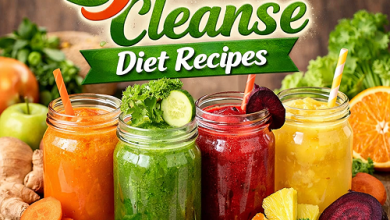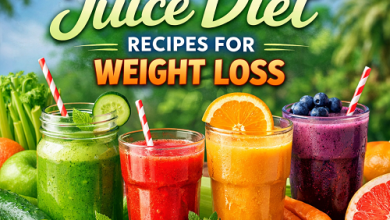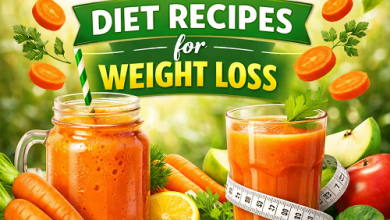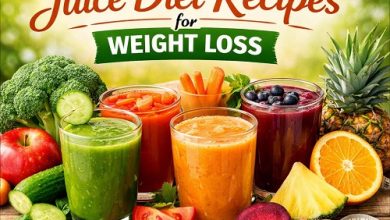You’ll Be Shocked! 9 American Foods a Heart Specialist Refuses to Eat After Decades in Medicine
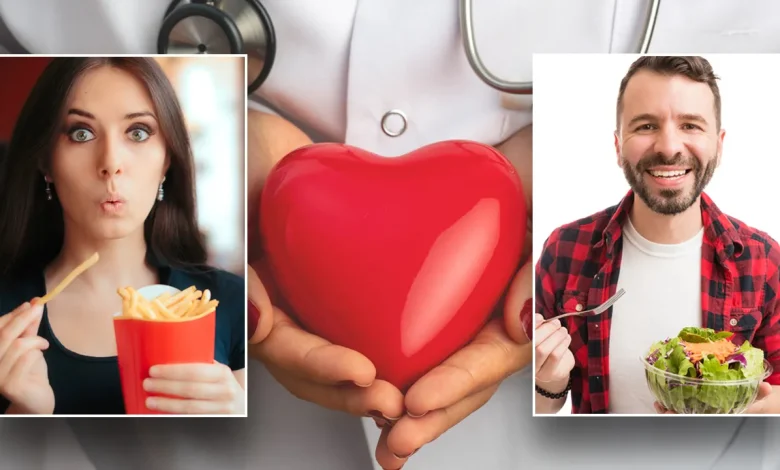
After spending decades studying the human heart and treating thousands of patients, one thing has become crystal clear to top cardiologists: what you eat can either protect your heart—or slowly destroy it. The American diet, famous for its convenience and indulgence, hides some of the most harmful foods for cardiovascular health.
While the average person may not think twice about grabbing a burger, a soda, or a handful of chips, these everyday foods have long-term consequences that can lead to heart disease, high blood pressure, and stroke.
Nine American foods that a seasoned heart specialist absolutely refuses to eat—and explain why you should avoid them too if you care about your heart health.
1. Processed Meats: A Hidden Heart Killer
Examples: Bacon, sausage, hot dogs, pepperoni, deli meats.
Processed meats are a staple in many American diets—found in breakfast plates, sandwiches, and pizzas. But to a heart specialist, they represent one of the most dangerous categories of food.
These meats are loaded with saturated fats, sodium, nitrates, and preservatives—all of which damage the cardiovascular system over time. Studies from the American Heart Association show that eating processed meat even a few times a week increases the risk of heart disease and stroke.
- Why They’re Dangerous:
- High sodium content raises blood pressure.
- Nitrates and nitrites form harmful compounds that inflame blood vessels.
- Saturated fats contribute to plaque buildup in arteries.
Heart-Healthy Swap:
Opt for lean proteins such as grilled chicken, turkey, tofu, or lentils. You’ll still get your protein fix—without the heart-damaging chemicals.
2. Sugary Beverages: The Silent Artery Clogger
Examples: Soda, energy drinks, sweetened teas, and fruit punches.
Sugary drinks are everywhere—from vending machines to fast-food restaurants. But to cardiologists, they are liquid sugar bombs that silently erode heart health.
When you drink soda or sweet tea, your blood sugar spikes rapidly. Over time, this leads to insulin resistance, inflammation, and obesity—all major risk factors for heart disease.
Even “zero-sugar” or “diet” sodas aren’t off the hook—research suggests artificial sweeteners can disrupt metabolism and increase cravings for sweets.
- Why They’re Dangerous:
- Added sugars raise triglyceride levels.
- Contribute to obesity and diabetes.
- Increase risk of metabolic syndrome—a key driver of heart disease.
Heart-Healthy Swap:
Infuse water with lemon, cucumber, or berries for flavor. Unsweetened green tea and sparkling water are also excellent alternatives.
3. Refined Grains: The White Carb Trap
Examples: White bread, white rice, pastries, and regular pasta.
Refined grains have been stripped of their fiber, vitamins, and minerals—leaving behind empty calories that cause blood sugar spikes and crashes.
Heart specialists warn that refined carbs act much like sugar in the body, raising insulin levels and contributing to belly fat accumulation, which increases cardiovascular risk.
- Why They’re Dangerous:
- Lack of fiber leads to poor blood sugar control.
- Can elevate LDL (“bad”) cholesterol.
- Promote inflammation that damages arteries.
Heart-Healthy Swap:
Choose whole grains like quinoa, brown rice, barley, and whole-grain bread. Their fiber helps lower cholesterol and keeps blood sugar stable.
4. Fried Foods: A Shortcut to Arterial Blockage
Examples: French fries, fried chicken, onion rings, and mozzarella sticks.
Fried foods are the ultimate comfort food—but for the heart, they’re a nightmare. When foods are deep-fried, they absorb trans fats and oxidized oils that increase LDL cholesterol and decrease HDL (the “good” kind).
Long-term studies show that people who eat fried foods regularly have a 37% higher risk of heart failure.
- Why They’re Dangerous:
- High in trans fats, which are linked directly to coronary artery disease.
- Promote inflammation and oxidative stress.
- Often cooked in reused oils, creating toxic compounds.
Heart-Healthy Swap:
Bake, air-fry, or grill your foods instead. You can still enjoy crispiness without the cardiovascular damage.
5. Packaged Snacks: Small Size, Big Risk
Examples: Chips, cheese puffs, snack cakes, and crackers.
They may come in small packages, but they deliver a big dose of salt, refined carbs, and unhealthy fats. Cardiologists consistently warn that these foods are addictive because they’re engineered to hit the brain’s pleasure centers—making it hard to stop eating them.
Excessive sodium from these snacks leads to water retention and elevated blood pressure, forcing the heart to work harder with every beat.
- Why They’re Dangerous:
- Extremely high sodium content.
- Often made with refined flour and trans fats.
- Provide no real nutritional value.
Heart-Healthy Swap:
Snack on unsalted nuts, seeds, air-popped popcorn, or fresh fruit. These provide nutrients and healthy fats without the sodium overload.
6. Fast Food Burgers: The Heart’s Worst Enemy
Examples: Cheeseburgers, bacon burgers, double-patty sandwiches.
No list of heart-unfriendly foods is complete without the American fast-food burger. These meals combine red meat, cheese, refined buns, and high-sodium sauces—a deadly combination for your arteries.
Even occasional indulgence can have a measurable effect. One meal can exceed your daily recommended intake of sodium and saturated fat, both of which raise blood pressure and cholesterol.
- Why They’re Dangerous:
- Saturated fat clogs arteries.
- Excess sodium elevates blood pressure.
- Highly processed ingredients contribute to inflammation.
Heart-Healthy Swap:
Make a homemade turkey or black bean burger on a whole-grain bun with avocado and vegetables. It’s just as satisfying but infinitely better for your heart.
7. Pastries and Baked Goods: Sweet but Deadly
Examples: Doughnuts, muffins, cookies, and cakes.
They may smell heavenly, but baked goods are typically made with refined flour, sugar, butter, and trans fats—a heart specialist’s nightmare combination.
Trans fats raise LDL cholesterol and lower HDL, while added sugars lead to weight gain and insulin resistance. Together, these effects accelerate the development of atherosclerosis (hardening of the arteries).
- Why They’re Dangerous:
- Contain both saturated and trans fats.
- High sugar levels fuel inflammation.
- Provide no beneficial fiber or nutrients.
Heart-Healthy Swap:
Bake at home with whole-grain flour, olive oil, and natural sweeteners like honey or mashed banana. You can control what goes into your treats.
8. Processed Cheese: The Sneaky Sodium Bomb
Examples: American cheese slices, cheese spreads, and nacho cheese dips.
Many Americans love their cheese, but not all cheese is created equal. Processed cheese products are far from natural—they’re filled with emulsifiers, preservatives, and loads of sodium.
Heart specialists avoid these foods because the salt and saturated fat contribute to high blood pressure and cholesterol, while additives can harm gut health.
- Why They’re Dangerous:
- Extremely high in sodium.
- Contains saturated fats that raise cholesterol.
- Offers little nutritional value compared to real cheese.
Heart-Healthy Swap:
Opt for small portions of natural cheeses like feta, goat cheese, or part-skim mozzarella. They’re lower in fat and salt but still satisfy cheese cravings.
9. Canned Soups and Instant Meals: The Sodium Trap
Examples: Instant noodles, canned soups, frozen dinners.
They’re convenient—but that convenience comes at a cost. Many canned and packaged meals are overflowing with sodium and preservatives to extend shelf life. One serving can contain more than the daily recommended limit of 2,300 mg of sodium.
Too much sodium leads to water retention, high blood pressure, and heart strain, especially in older adults or those with pre-existing conditions.
- Why They’re Dangerous:
- Sodium overload leads to hypertension.
- Often include artificial flavor enhancers.
- Minimal fiber and fresh nutrients.
Heart-Healthy Swap:
Prepare homemade soups with fresh vegetables, herbs, and low-sodium broth. Freeze portions for convenience without sacrificing heart health.
The Bigger Picture: Why These Foods Are So Common in America
You might wonder—if these foods are so bad, why are they everywhere?
The answer lies in marketing, convenience, and cost.
The food industry has spent decades promoting ultra-processed foods as quick, cheap, and tasty options. Unfortunately, they’ve also normalized eating patterns that contribute to the epidemic of heart disease—the leading cause of death in the U.S.
Heart specialists see the effects firsthand: rising rates of obesity, diabetes, and hypertension among younger adults. The culprit? Processed, sugary, and fatty foods that dominate supermarket shelves and fast-food menus.
How to Eat Like a Cardiologist: The Heart-Healthy Blueprint
Avoiding harmful foods doesn’t mean giving up flavor or satisfaction. Cardiologists recommend a simple, sustainable approach built on whole, nutrient-dense foods.
Here’s what their daily diet typically looks like:
🥗 1. Eat Plenty of Fruits and Vegetables
Aim for colorful plates filled with antioxidants, fiber, and vitamins. These nutrients reduce inflammation and improve circulation.
🫒 2. Focus on Healthy Fats
Use olive oil, avocado, nuts, and fatty fish like salmon for omega-3s. These fats help lower LDL cholesterol and raise HDL.
🌾 3. Choose Whole Grains
Oats, quinoa, and barley provide soluble fiber that binds cholesterol and prevents arterial plaque buildup.
🐟 4. Lean Proteins Only
Choose fish, chicken, or plant-based proteins instead of red and processed meats.
💧 5. Stay Hydrated—With Water
Hydration supports blood flow and kidney function. Skip the sodas and energy drinks.
🚫 6. Limit Added Sugars and Salt
Learn to read labels and avoid foods with more than 5–10% of your daily sodium per serving.
The Bottom Line: Protect Your Heart, One Bite at a Time
A heart specialist’s diet isn’t about restriction—it’s about protection. After decades in medicine, experts have seen how a single dietary habit can make the difference between a healthy life and years of cardiac complications.
The nine foods on this list are not inherently evil, but when eaten frequently and in excess, they slowly wear down your heart. The good news is that every positive change counts. Switching from soda to water, from fried to grilled, or from white bread to whole-grain can dramatically lower your risk.

